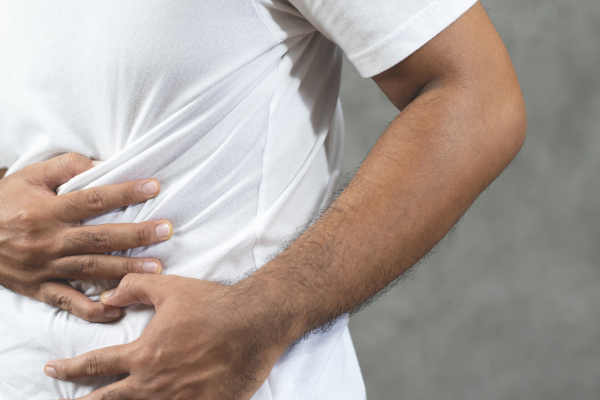Gastritis, collagen and gut health

How can collagen help with gastritis - gastritis and intestinal health
Gastritis, or gastritis, is a common stomach condition that involves inflammation of the stomach lining. This inflammation can be caused by several factors, such as stress, poor diet, excessive alcohol or medication use, and not least infections, such as Helicobacter pylori . The symptoms that often accompany gastritis, such as stomach pain, bloating, nausea, and indigestion, can be very bothersome and affect quality of life. In addition to focusing on treating the stomach lining itself, it is important to understand the connection between gastritis and gut health, as an unhealthy gut can worsen or even cause stomach problems.
An often overlooked, but potentially effective, treatment is collagen. Collagen is a protein that is of great importance to the skin, joints, and gastrointestinal tract. It plays an important role in maintaining tissues and promoting healing in the stomach and intestines. In this article, we will explore how collagen can help relieve symptoms of gastritis and how gastritis and gut health are closely linked.
What is gastritis?
Gastritis is an inflammation of the gastric mucosa, which is the inner layer of the stomach that protects it from the aggressive effects of stomach acid. When this mucosa becomes irritated or inflamed, it can lead to pain and discomfort in the stomach, resulting in symptoms such as:
-
Pain or burning sensation in the upper abdomen
-
Bloating and feeling of fullness
-
Nausea and sometimes vomiting
-
Loss of appetite
-
Sour taste in the mouth
Gastritis can be acute or chronic. The acute form comes on quickly and is often caused by factors such as stress, infections, or the use of irritants such as alcohol and certain medications. Chronic gastritis develops slowly and can be the result of long-term exposure to such factors, which can damage and weaken the stomach lining over time.
What affects the gastric mucosa?
The stomach lining is a complex structure made up of different cells that are responsible for protecting the stomach from being destroyed by the strong stomach acid needed for digestion. However, if these protective mechanisms are disrupted, it can lead to inflammation, which is the case with gastritis. Causes of this inflammation can be:
-
Helicobacter pylori infection : A bacterium that often causes chronic gastritis.
-
Excessive alcohol intake : Alcohol irritates and destroys the stomach lining, which can cause inflammatory reactions.
-
Stress : Stress affects the production of stomach acid and can create an imbalance in the stomach lining, making it more difficult for it to protect against acid.
-
Medication : Long-term use of medications such as NSAIDs (non-steroidal anti-inflammatory drugs) can damage the stomach lining.
When the lining is damaged, stomach acid production increases, further irritating the inflamed tissue and worsening symptoms. If left untreated, this condition can lead to more serious conditions such as ulcers or even stomach cancer.
Gut health and its connection to gastritis
The stomach and intestines are two central components of the gastrointestinal tract, and they work closely together to break down and absorb nutrients from food. Therefore, it is not uncommon for gastritis and intestinal problems to be closely linked.
-
Gut microbiome – The gut microbiome is a collection of billions of microorganisms that live in the intestines and play a crucial role in digestion. A disruption in the gut microbiome (dysbiosis) can cause a variety of problems, including indigestion and inflammation in both the stomach and intestines. Research has shown that gut microbiome dysbiosis can worsen gastritis by affecting both the production of stomach acid and the integrity of the stomach lining.
-
Leaky Gut – An unhealthy gut can also contribute to gastritis by creating a condition called leaky gut. When the intestinal wall becomes damaged or inflamed, it can become permeable, allowing toxins, unwanted bacteria, and undigested food to leak into the bloodstream. This leads to systemic inflammation that can affect both the stomach and intestines. Leaky gut is strongly linked to chronic inflammatory conditions, including gastritis.
-
The enteric nervous system – The gut and brain are connected by a network of nerves called the enteric nervous system, or “the second brain.” When we are stressed or anxious, this communication is disrupted and can increase stomach acid production, which worsens the symptoms of gastritis. In addition, stress can cause an imbalance in the gut flora and contribute to digestive problems such as diarrhea or constipation, which in turn can affect gut health.
In conclusion, gut health is directly linked to gastritis, and improving gut function and balance can play a crucial role in treating and relieving the symptoms of gastritis.
The role of collagen in gastritis and intestinal health
Collagen is a structural protein that makes up a large part of the body's connective tissue, including the skin, joints, and blood vessels. Collagen plays an important role in the gastrointestinal tract, where it helps keep the intestinal walls and stomach lining strong and intact. When it comes to gastritis and gut health, collagen can help in several ways:
-
Strengthens intestinal walls – Collagen is a central component of the intestinal connective tissue and helps maintain the integrity of the intestinal walls. When the intestines are damaged or permeable (leaky gut), collagen can help repair and restore the intestinal barrier function, reducing inflammation and leaky gut.
-
Promotes the healing process of the stomach lining – Collagen plays a key role in repairing and regenerating tissue, and it can help heal the inflamed stomach lining in gastritis. The stomach lining is made up of several layers, and collagen is an important part of the outer protection. When the stomach lining is damaged, collagen can help rebuild it and reduce the inflammatory process.
-
Reduces inflammation – Collagen has anti-inflammatory properties that can help reduce inflammation in both the stomach and intestines. Since gastritis and intestinal problems are often associated with inflammation, collagen can help reduce this inflammation and relieve symptoms.
-
Improves Digestive Function – Collagen is also important for intestinal function, as it supports bowel movements and helps ensure efficient digestion. By improving intestinal motility, collagen can help prevent constipation and other digestive problems that can worsen gastritis.
-
Supports stress management – Since stress is a common cause of both gastritis and intestinal problems, collagen can help reduce the negative effects of stress by strengthening the intestinal barrier and reducing inflammation in the gastrointestinal tract.
How can collagen be used to improve stomach health and gastritis?
Collagen can be taken through supplements or by consuming foods rich in collagen, such as bone broth. To effectively use collagen to relieve gastritis and support gut health, one can include collagen in their daily diet in the following ways:
-
Collagen Powder – Collagen powder is a convenient and popular dietary supplement that can be easily mixed into water, smoothies, or tea. It is a quick and effective way to increase collagen intake and improve gut health.
-
Bone Broth – Bone broth is a natural source of collagen and other nutrients that are beneficial for both the stomach and intestines. Drinking bone broth regularly can help strengthen the intestinal walls and promote healing of the stomach lining.
-
Collagen-rich foods and collagen complexes – In addition to bone broth, there are other foods that contain collagen, such as chicken skin, fish bones, and other animal parts. These can be included in the diet to support gut health and help repair the stomach lining. Collagen complexes can also be beneficially consumed every day.
-
Probiotic Foods – Since gut flora plays a crucial role in both gut health and stomach health, probiotic foods like yogurt, kefir, and sauerkraut can help support a healthy bacterial flora in the intestines.
Conclusion
Gastritis and gut health are intimately connected, and taking care of both systems is crucial to relieving gastritis symptoms and improving overall gut health. Collagen plays an important role in this process, as it helps repair and strengthen both the stomach lining and the intestinal walls. Including collagen in your diet, while improving your gut flora and managing stress, can effectively support both gastritis healing and overall gut health.






